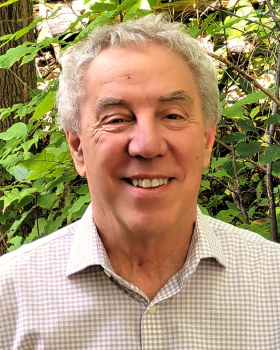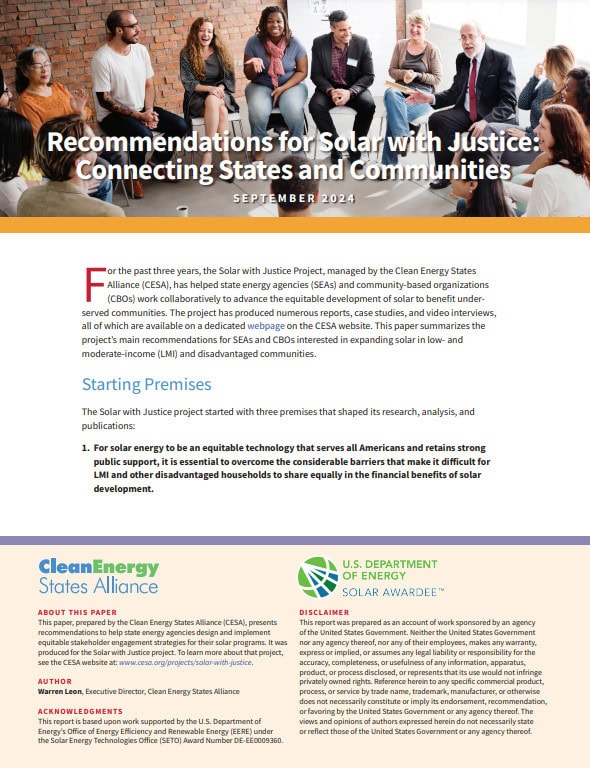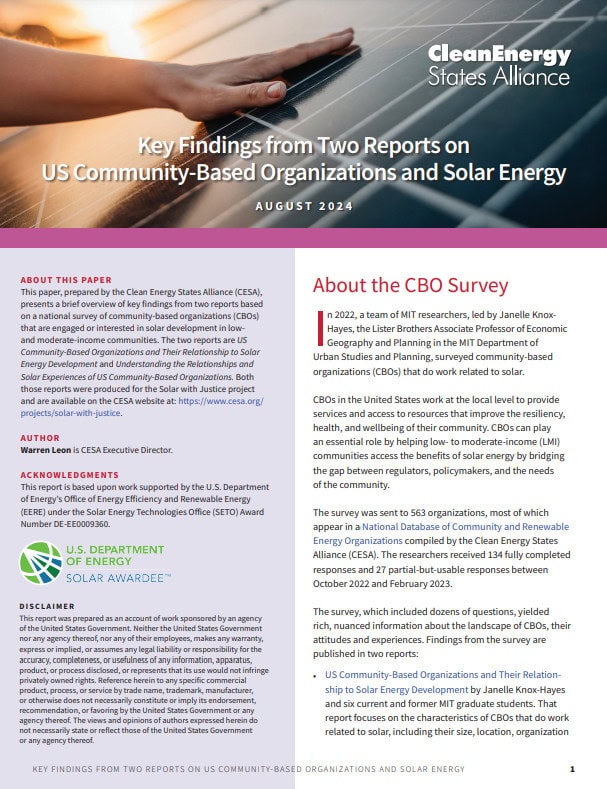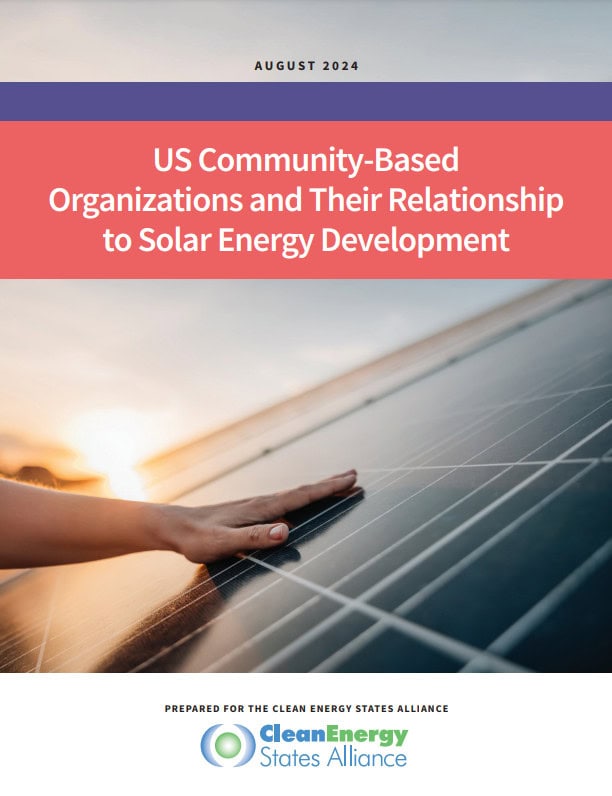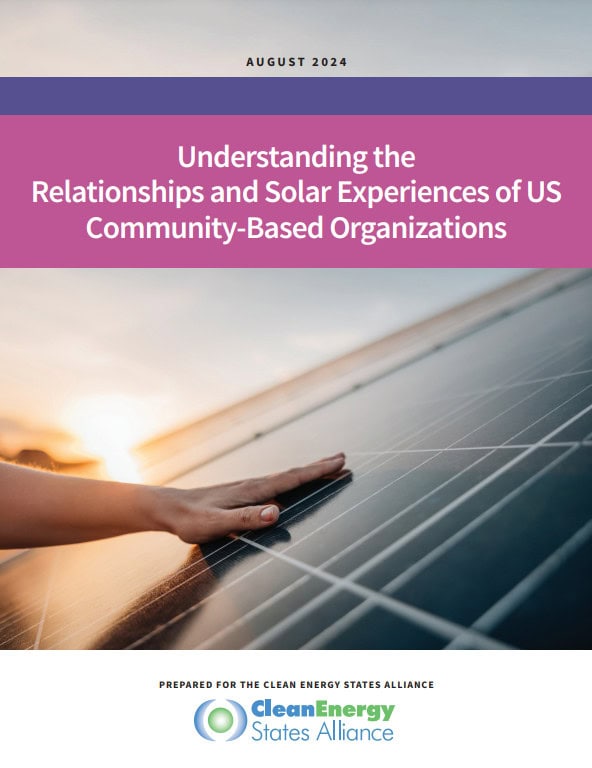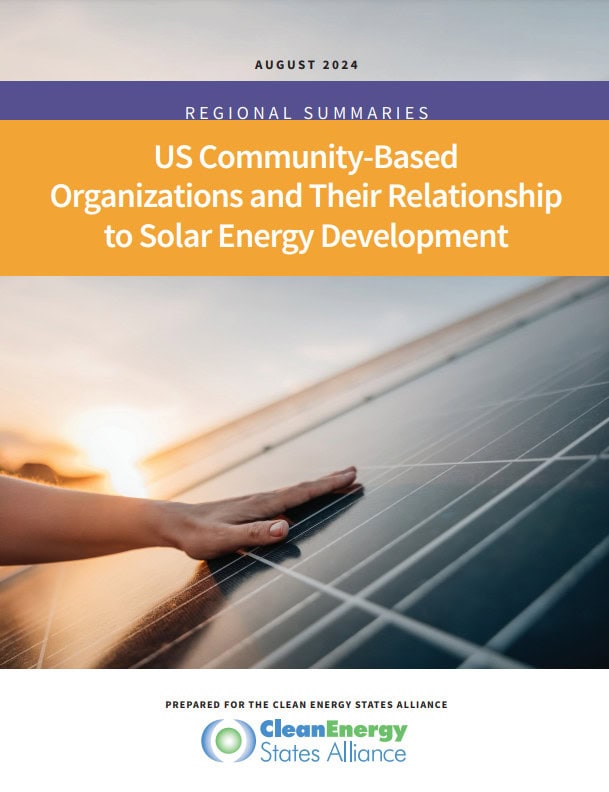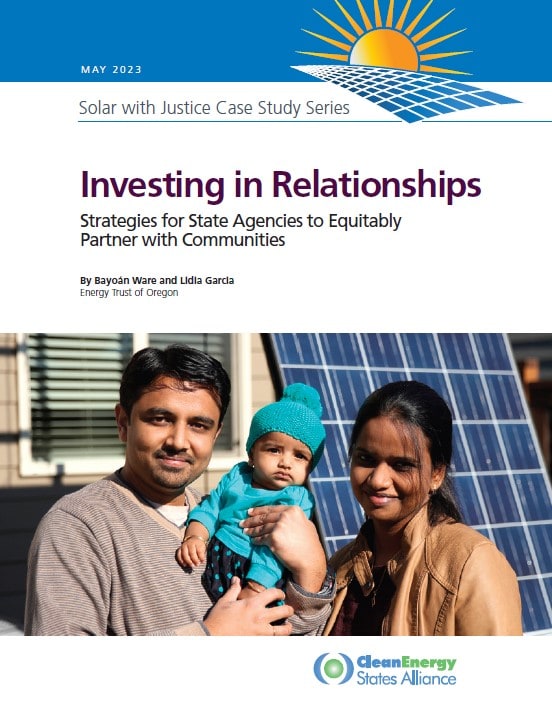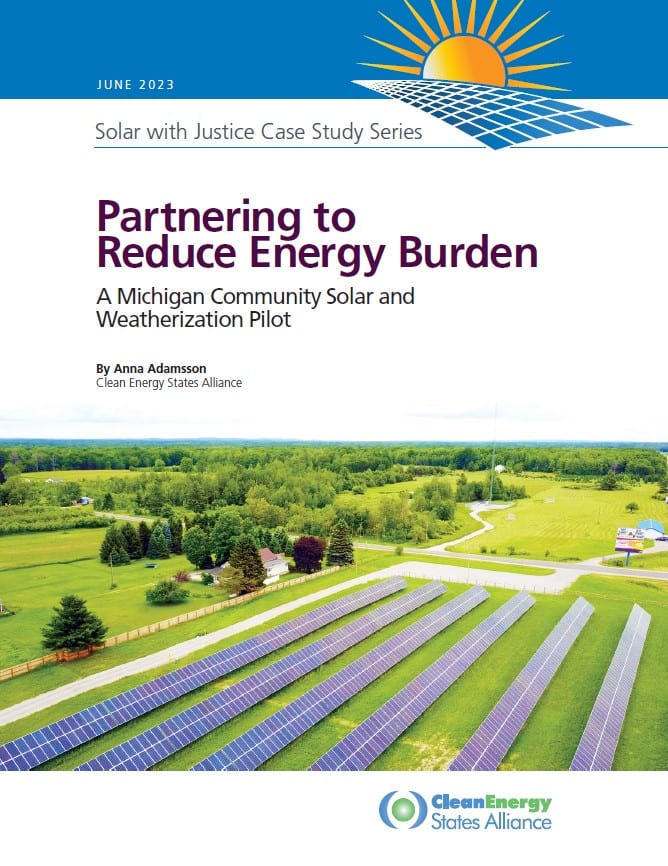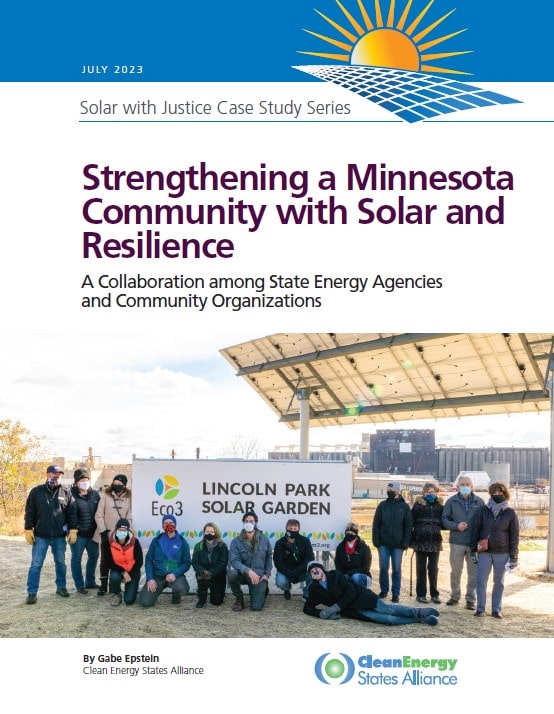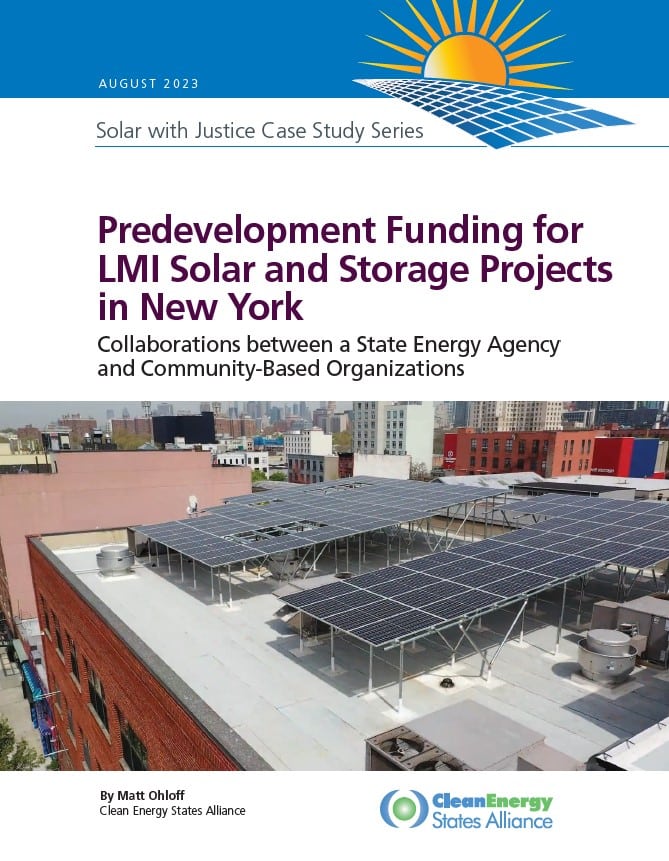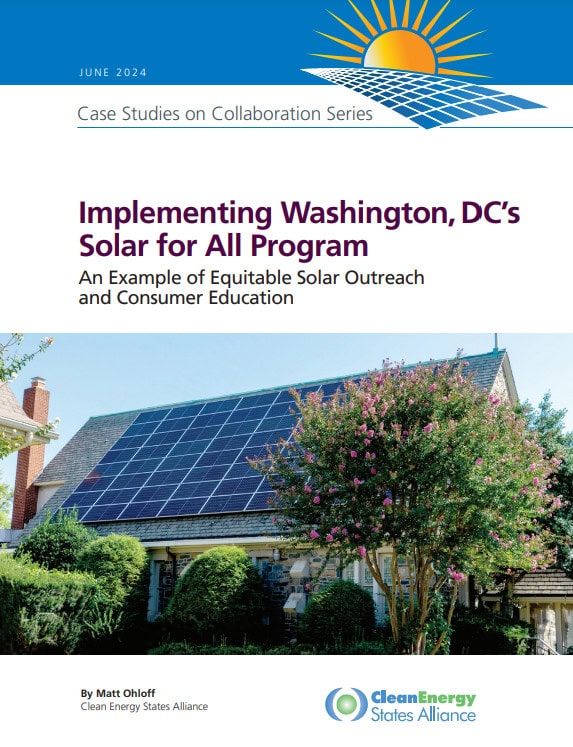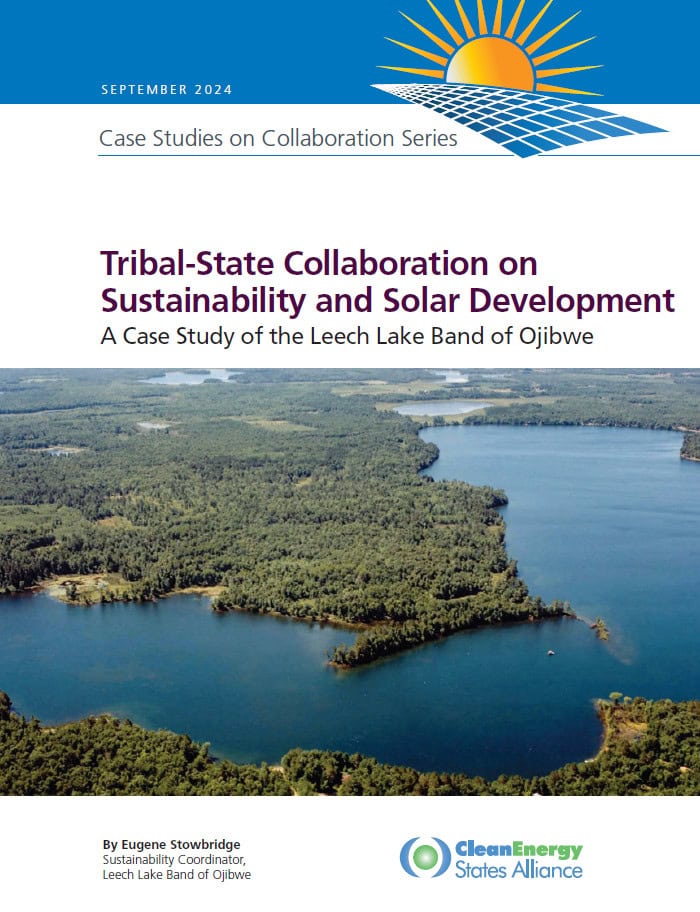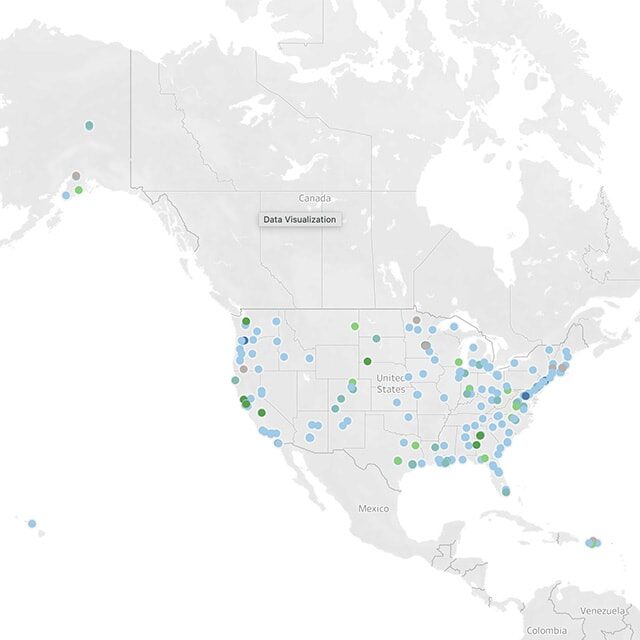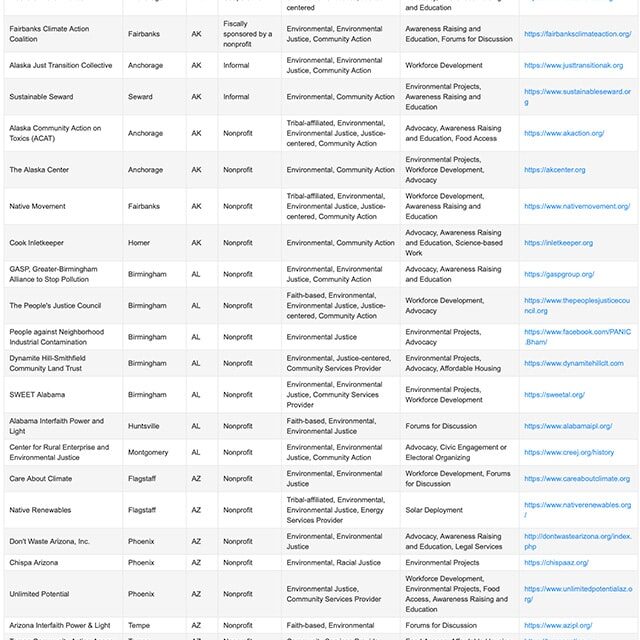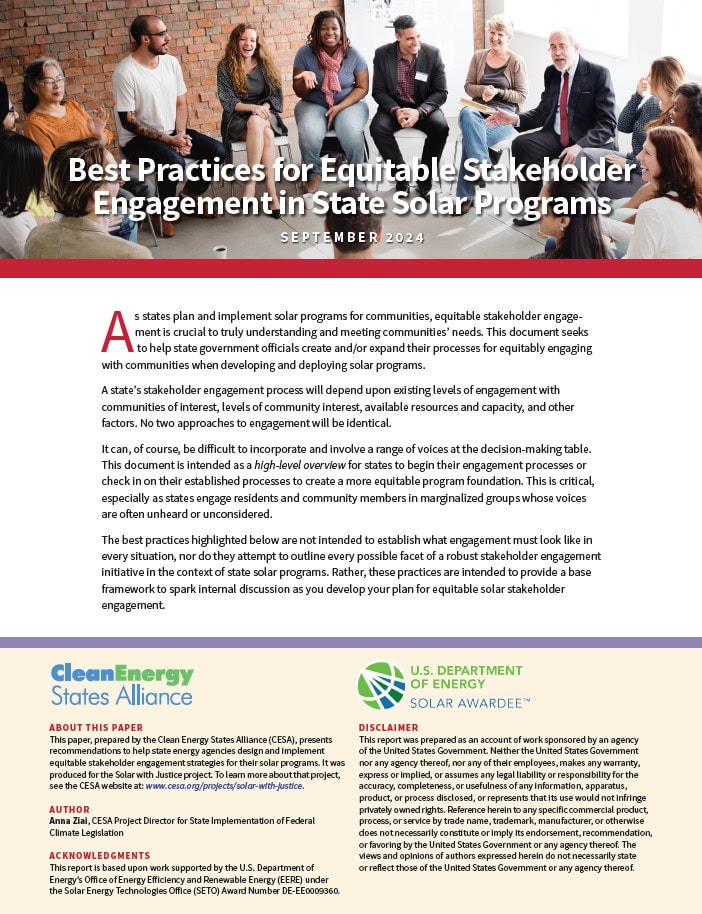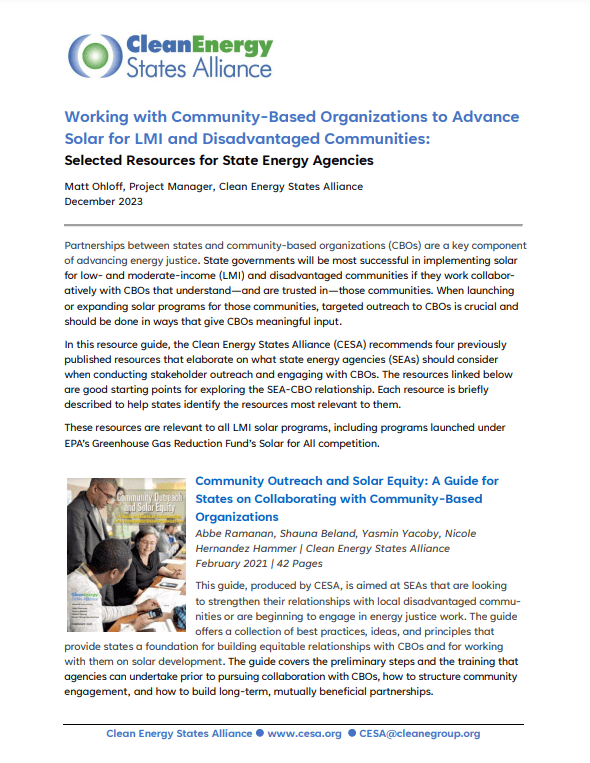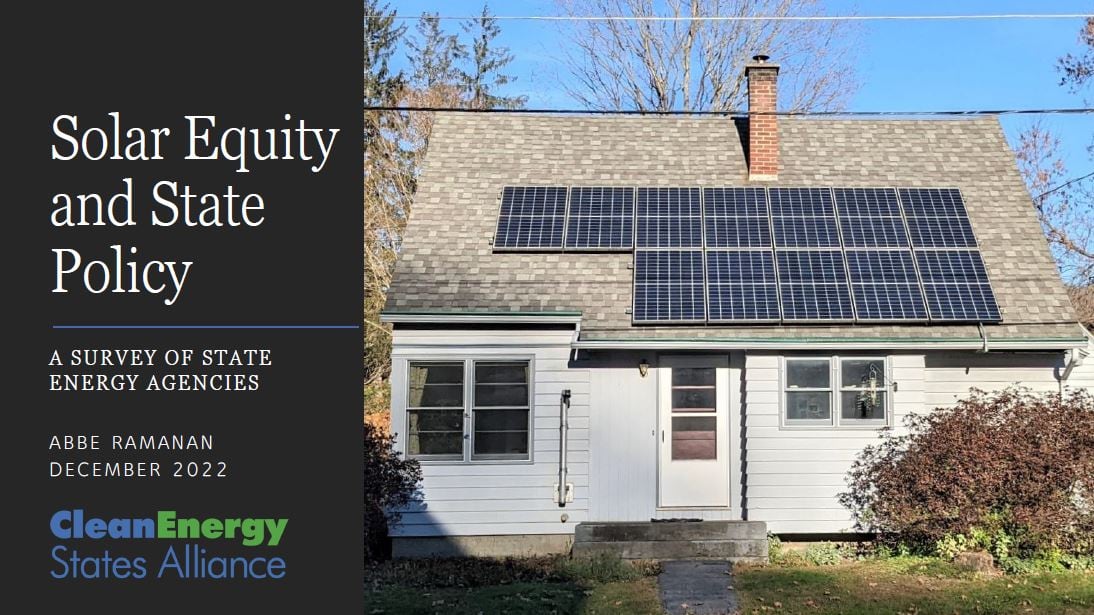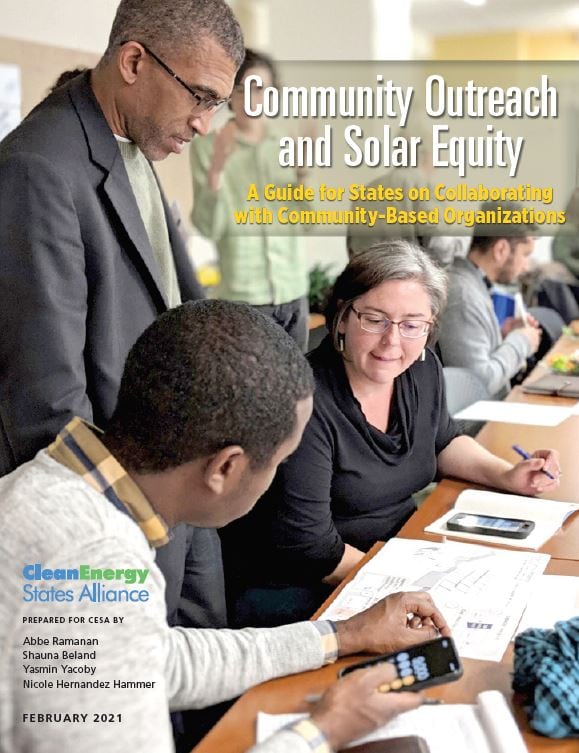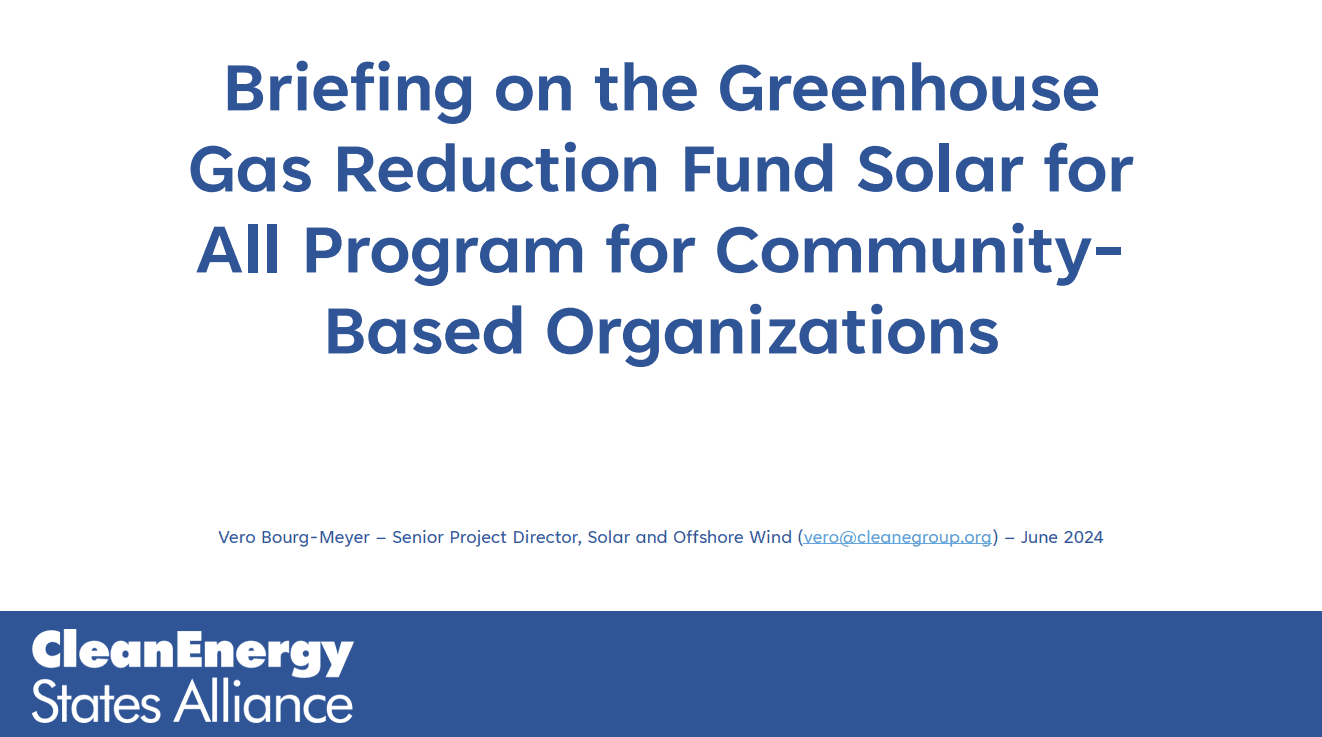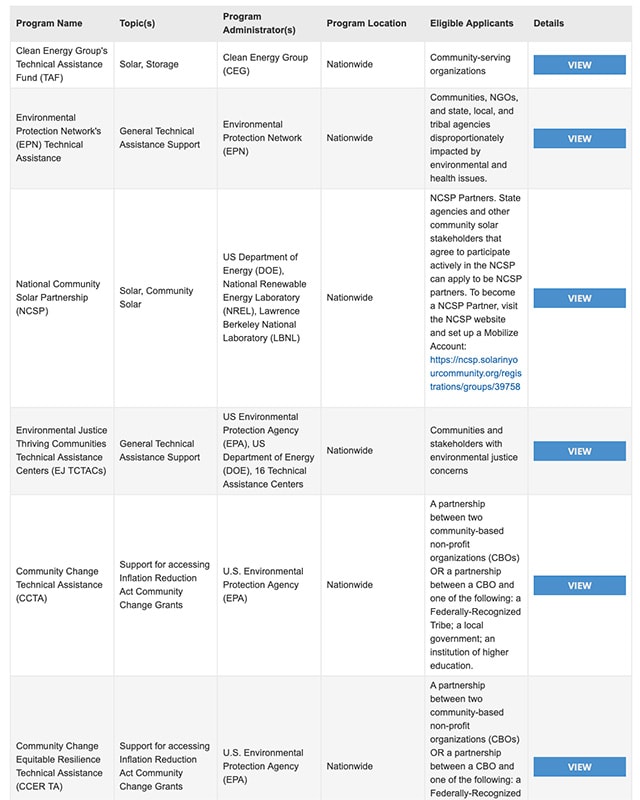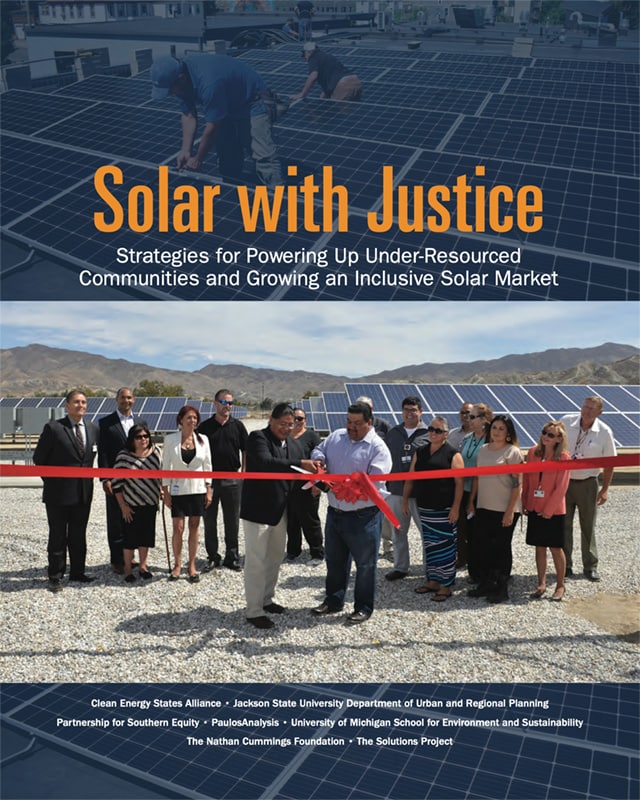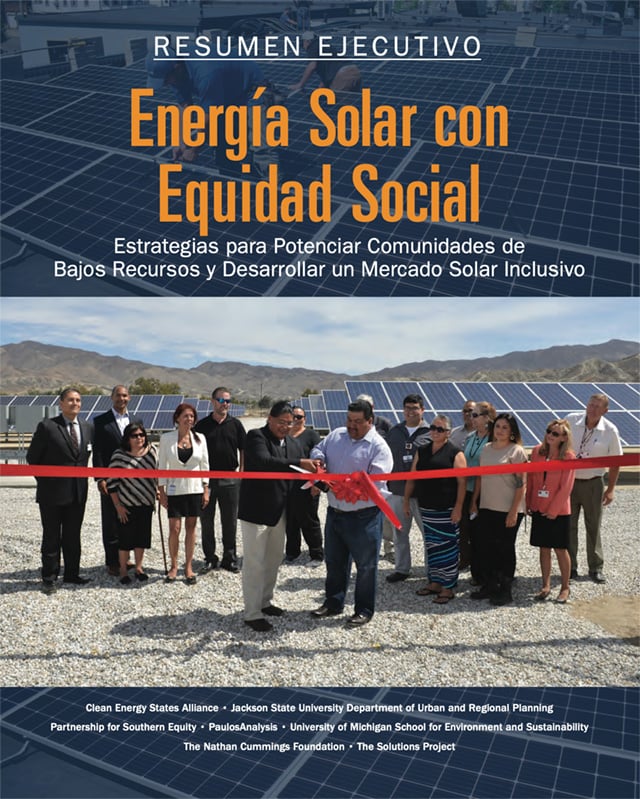Solar with Justice Resources: A Comprehensive Overview
The resources below are all the documents produced as part of CESA’s Solar with Justice: Connecting States and Communities project. This project lasted three years, from 2021-2024, and sought to understand the role of frontline community-based organizations (CBOs) in solar development. It identified best practices for collaboration between state energy agencies (SEAs) and CBOs to ensure low-and-moderate income (LMI) households benefit from solar development.
The resources include:
- Recommendations for Solar with Justice: Connecting States and Communities (view)
- US Community-Based Organizations and Solar: A Series of Reports (view)
- Solar with Justice Video Interview Series (view)
- Five case studies highlighting examples of collaboration between SEAs and CBOs, and one case study highlighting collaboration between a State and Tribal nation (view)
- National Database of Community and Renewable Energy Organizations (view)
- Additional resources for SEAs (view)
- Additional resources for CBOs (view)
- The original Solar with Justice report, published in 2019 (view)
The Solar with Justice: Connecting States and Communities project was supported through an award from the US Department of Energy Solar Energy Technologies Office. The Nathan Cummings Foundation also provided funding support for the project.
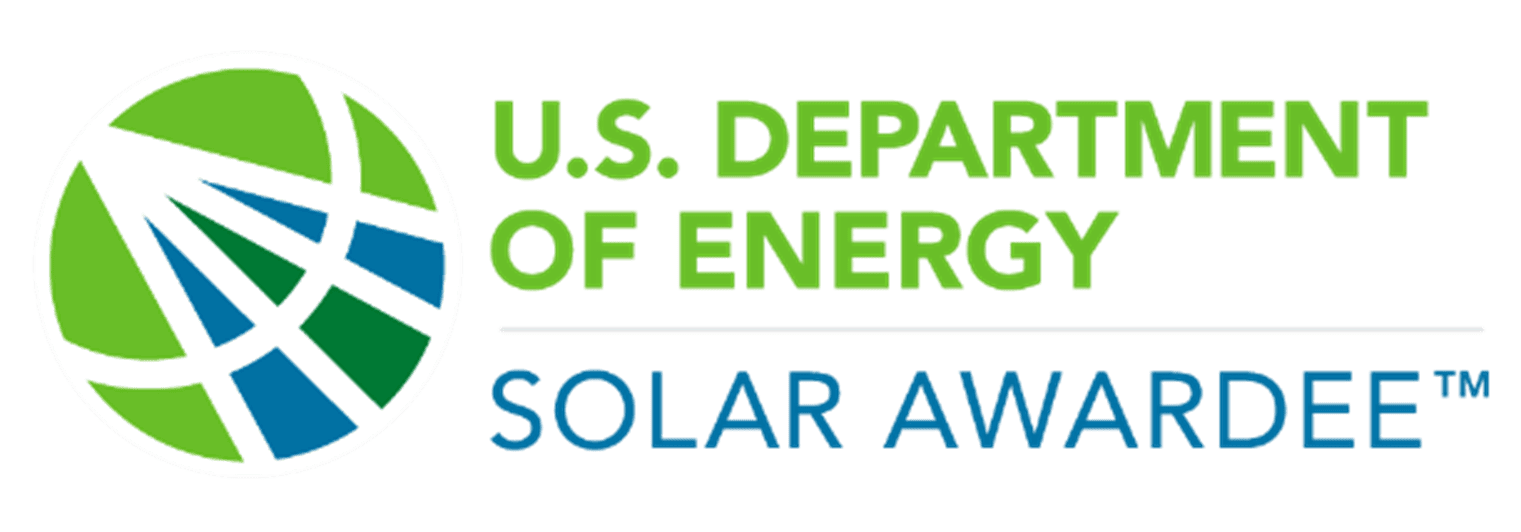
This webpage is based upon work supported by the U.S. Department of Energy’s Office of Energy Efficiency and Renewable Energy (EERE) under the Solar Energy Technologies Office (SETO) Award Number DE-EE0009360. The views expressed herein do not necessarily represent the views of the U.S. Department of Energy or the United States Government.
Recommendations for Solar with Justice: Connecting States and Communities
Recommendations for Solar with Justice: Connecting States and Communities outlines seven best practices for state energy agencies to design and implement equitable stakeholder engagement strategies for their solar programs. These recommendations were developed through CESA's Solar with Justice project. This paper provides a brief overview of the the impact of the Inflation Reduction Act and Justice40, and it provides links to related resources.
US Community-Based Organizations and Solar: A Series of Reports
In August 2024, CESA released a series of reports based on the findings of a nationwide survey of CBOs. The survey, which included dozens of questions, yielded rich, nuanced information about the landscape of CBOs, their attitudes and experiences. The two main reports are:
- US Community-Based Organizations and Their Relationship to Solar Energy Development by a team of MIT researchers led by Professor Janelle Knox-Hayes. The report focuses on the characteristics of CBOs that do work related to solar, including their size, location, organization tenure, funding, and the focuses of their work.
- Understanding the Relationships and Solar Experiences of US Community-Based Organizations by Warren Leon and Lizzy Diaz of CESA covers some of the survey responses that are not fully explored in the longer report from MIT, focusing on CBOs’ relationships to their communities, stakeholder groups, and state governments, as well as CBOs’ experiences with solar work in their communities.
To make the findings more accessible to people who may not have time to read the full reports, CESA has produced two shorter summary documents:
- Key Findings from Two Reports on US Community-Based Organizations and Solar Energy collects some of the most important and interesting findings from the two longer reports.
- Regional Summaries: US Community-Based Organizations and Their Relationship to Solar Energy Development presents two-page profiles of the CBOs in four regions: the Midwest, Northeast, Southeast, and West.
Video Interview Series
To highlight the theme of CBO-state collaboration, CESA produced a series of short, three-minute video interviews. The five video interviews are with Janelle Knox-Hayes (MIT’s lead researcher for this project and Lister Brothers Associate Professor of Economic Geography and Planning in the MIT Department of Urban Studies and Planning), Tony Reames (Tishman Professor of Environmental Justice at the University of Michigan School for Environment and Sustainability and former U.S. Department of Energy Deputy Director for Energy Justice), Warren Leon (CESA Executive Director), Shauna Beland (Rhode Island Office of Energy Resources), and Bayo Ware (Energy Trust of Oregon).
Case Studies
CESA published six case studies as part of the Solar with Justice project:
- Investing in Relationships: Strategies State Agencies Can Use to Equitably Partner with Community Representatives: This case study analyzes six programs conducted by the Energy Trust of Oregon that have shown success in building meaningful and impactful relationships with community representatives. These programs can serve as a model for other state agencies seeking to develop relationships with community partners in order to better meet their shared goals. May 2023.
- Partnering to Reduce Energy Burden: A Michigan Community Solar and Weatherization Pilot: In an effort to reduce the energy burden on low-income Michiganders, the Michigan Department of Environment, Great Lakes, and Energy collaborated with local community action agencies and utilities to develop three separate community solar pilot programs. This case study illustrates how the program partners developed each pilot, what they learned, and what advice they would give to those developing future programs. June 2023.
- Strengthening a Minnesota Community with Solar and Resilience: This case study details the development of a community solar array and Resilience Hub in Duluth, Minnesota. This project provides a useful model for community-based organizations and state energy agencies interested in developing their own equity-focused energy and resilience projects. July 2023.
- Predevelopment Funding for LMI Solar and Storage Projects: A Case Study from New York: NYSERDA’s Affordable Solar and Storage Predevelopment and Technical Assistance program in New York State is successfully addressing the predevelopment challenge for solar and storage projects for low- and moderate-income residents. August 2023.
- Implementing Washington, DC’s Solar for All Program: An Example of Equitable Solar Outreach and Consumer Education: Washington, DC’s Solar for All program aims to benefit over 100,000 households with incomes at or below 80% of area median income. This case study profiles the program and the ways its administrators have handled outreach and consumer education over the program’s seven-year history. June 2024.
- Tribal-State Collaboration on Sustainability and Solar Development: A Case Study of the Leech Lake Band of Ojibwe: This case study explores the Tribal-State relationship through the experiences of the Leech Lake Band of Ojibwe, which shares geography with Minnesota. Over the past decade, the Band has built relationships with state agencies in support of renewable energy and sustainability programs. September 2024.
National Database of Community and Renewable Energy Organizations
CESA compiled this database of over 400 community-oriented organizations with a focus on or interest in clean energy at the local level, especially for low-income and disadvantaged communities. The database especially emphasizes groups that seek to advance solar energy and environmental justice.
Explore the database as a map or a spreadsheet.
Additional Resources for State Energy Agencies (SEAs)
Best Practices for Equitable Stakeholder Engagement in State Solar Programs
September 2024
This document seeks to help state government officials create and/or expand their processes for equitably engaging with communities when developing and deploying solar programs.
Working with Community-Based Organizations to Advance Solar for LMI and Disadvantaged Communities: Selected Resources for State Energy Agencies
December 2023
In this resource guide, CESA recommends four previously published resources that elaborate on what state energy agencies should consider when conducting stakeholder outreach and engaging with community-based organizations.
Solar Equity and State Policy: A Survey of State Energy Agencies
December 2022
This Clean Energy States Alliance report explores how SEAs are currently working with CBOs on equitable solar policy, and the barriers to successfully implement these policies. The report is based on a survey of SEAs conducted by CESA in conjunction with Energy Trust of Oregon and Kim Wolske of the University of Chicago.
Community Outreach and Solar Equity: A Guide for States on Collaborating with Community-Based Organizations
February 2021
This guide is a collection of best practices, ideas, and principles that provide states a foundation for building equitable relationships with community-based organizations and for working with them on solar development.
Additional Resources for Community-Based Organizations (CBOs)
Solar for All Briefing for Community-Based Organizations
June 2024
This deck is a short series of recommendations to Community-Based Organizations (CBOs) that wish to better understand the Greenhouse Gas Reduction Fund Solar for All competition and how to engage with the Solar for All opportunities. It briefly introduces the Solar for All competition, offers a realistic timeline for programs and funding deployment, and suggests concrete steps and resources for CBOs to support states in ensuring the success of the program.
Directory of Solar Energy Technical Assistance Available to Community-Based Organizations
March 2024
Community-based organizations (CBOs) pursuing solar energy projects may benefit from additional resources and information to help them achieve their desired clean energy and community-building outcomes.
Original Report
In December 2019, CESA published a major report, Solar with Justice: Strategies for Powering Up Under-Resourced Communities and Growing an Inclusive Solar Market. With funding from The Nathan Cummings Foundation, CESA worked with the Jackson State University Department of Urban and Regional Planning, the Partnership for Southern Equity, PaulosAnalysis, the University of Michigan School for Environment & Sustainability, and The Solutions Project to research solar’s role in under-resourced communities and identify the most equitable and impactful strategies for advancing solar technologies in a way that benefits under-resourced communities. The report includes detailed recommendations for various key stakeholder groups, including state governments, community organizations, philanthropic foundations, the solar industry, and municipalities.

